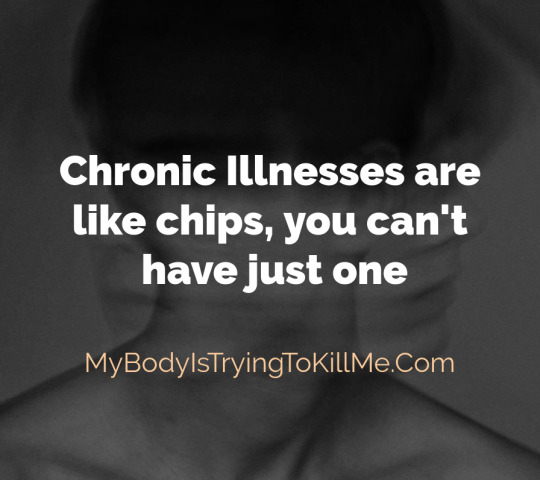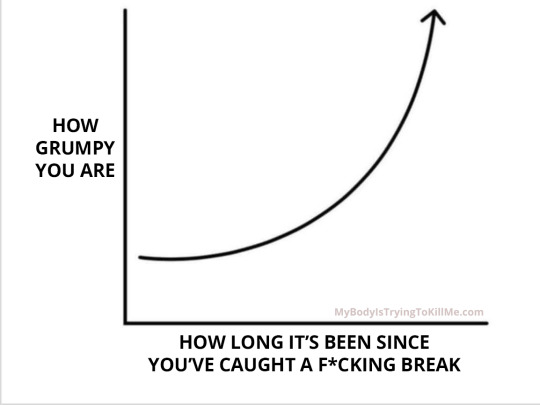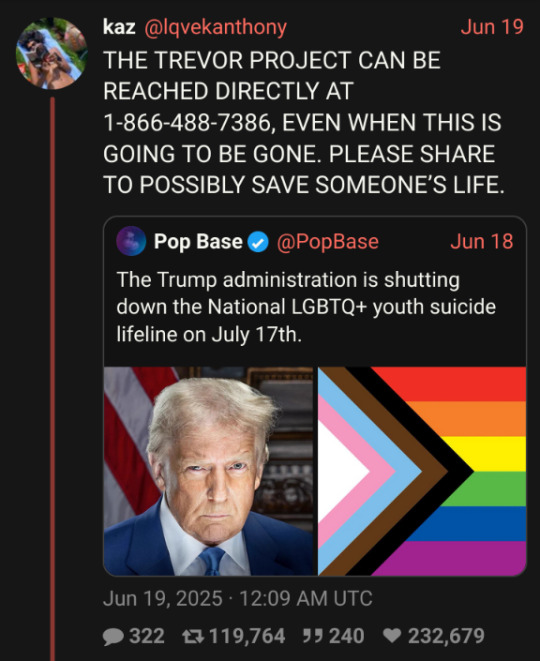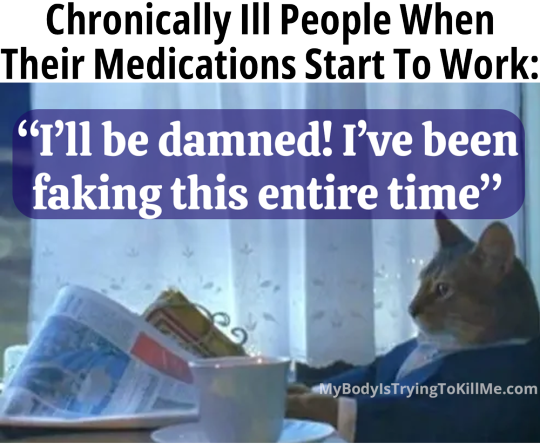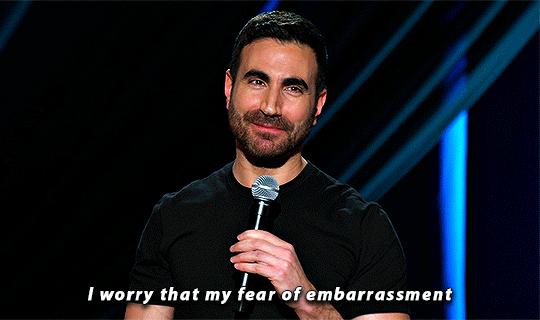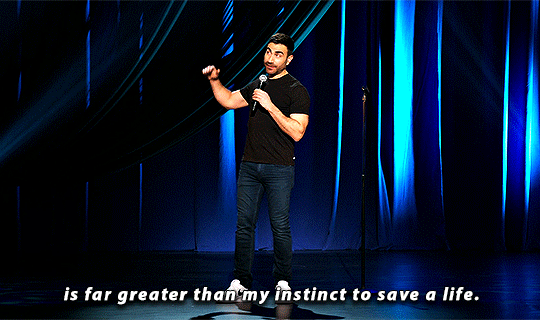two friends with an open dialougue about what they're experiencing in the world
Don't wanna be here? Send us removal request.
Text
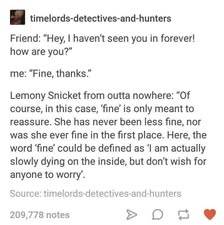
Source: timelords-detectives-and-hunters on Tumblr
56 notes
·
View notes
Text
I’m getting bloodwork done today and I’m hoping that it actually shows something for once and gets me answers
21 notes
·
View notes
Text
i like the phrases "it's not for me," "it's not my thing," and "i'm not the target audience" because they're the most concise way to express "this thing that you enjoy has merits but idgaf about it" without being aggressive
100K notes
·
View notes
Text
Just asked my brother if he knew what John Green was famous for and he replied “being Hank Green’s brother?”
5K notes
·
View notes
Text
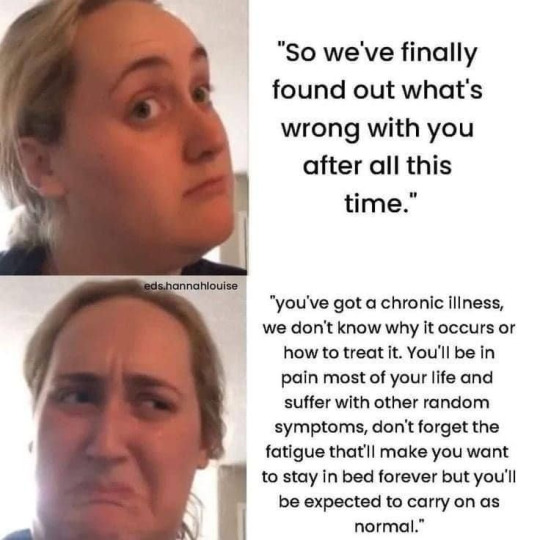
Source: eds.hannahlouise on Insta
338 notes
·
View notes
Text
ME: I'm a really pleasant person to be around unless I'm feeling sh*tty
FRIEND: But you're always feeling sh*tty
ME: Yup *holds up middle finger*
43 notes
·
View notes
Text
It’s May, which means it’s Ehlers Danlos Syndrome Awareness Month!
Since it’s massively underdiagnosed, I figured this would be a great occasion to share some of my favorite infographics about this condition. (And for any of you who have been wondering why my personal posts here are basically all about medical mishaps and weird injuries: it’s because of hEDS and comorbidities.)
To any of my fellow zebras out there, we will make it through this!







1K notes
·
View notes
Text
This is fun and all but have you considered that we are filled with riches and wonders, and our love keeps the things it finds? And we dance like drunken sailors, lost at sea, out of our minds? Have you considered that you find shelter somewhere in me, and I find great comfort in you? And I keep you safe from harm, you hold me in your arms, and I wanna go home but I am home? Yeah didn't think so
83 notes
·
View notes
Text
fuuuuck i just realized that the future idealized version of myself cant exist without current me being the catalyst for change and doing hard things. has anybody heard about this
187K notes
·
View notes
